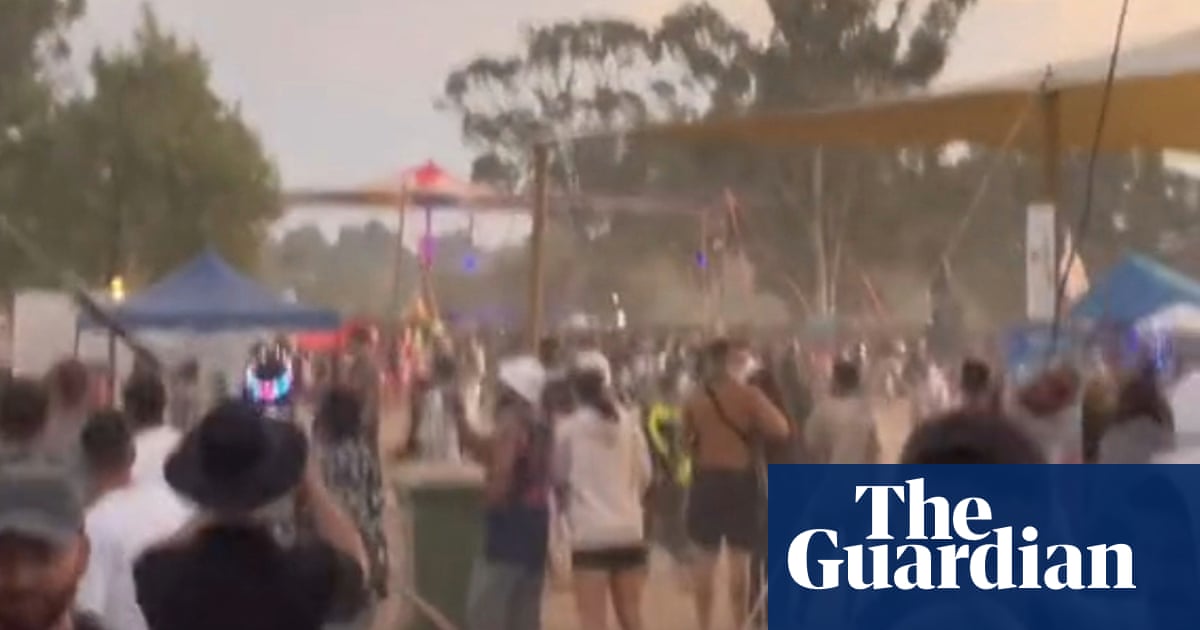
The emergency call came through at 2.53am. “Please help me bro, please, please, please. We are in the water. We have a family.”
The unidentified man, on a stricken dinghy, used WhatsApp to contact the French NGO Utopia 56, a humanitarian association, which works to support migrants in the camps in northern France.
Cries can be heard in the background of the 22-second recording as the man says: “Hello brother. We are in a boat and we have a problem. Please help. We have children and a family in a boat. Water is coming in but we don’t have anything for it, for feeling safety. Please help me, please, please, please. We are in the water. We have a family.”
Utopia 56 raised the alarm with the French coastguard at 2.57am, believing the dinghy was in French waters. The British government said it was told at 3.05am. Both countries assisted with the search and rescue efforts off the Kent coast on Wednesday. RNLI lifeboats were launched from Dover at 3.07am, quickly followed by boats from Ramsgate and Hastings.
The owner of a trawler told how his crew rescued 31 people from a dinghy. Ben Squire, the owner of Arcturus, said his skipper, Ray Strachan, and their six-man crew helped with the rescue operation. “The boat was there and the crew managed to get 31 people off the boat, all alive. You could see the carnage, the panic of the people in the water and the noise. That must have been overwhelming for the skipper and the crew.
“Conditions were a little bit rough. I think the bottom of the boat broke away and obviously people were in the water. It’s quite cold and that affects the body. But our guys were amazing. We managed to get 31 people on to the trawler.
“The crew piled them into the shower, hot water on them as they tried to warm them up, put clothes, the crew’s clothes on them, which is amazing, and fed them. It was absolutely brilliant what they have done.”
Initial indicators were that the survivors came from a variety of nationalities as is often the case with those making the desperate crossing – a fishing skipper, Raymond, involved in the rescue, said they had picked up people from conflict-ridden countries such as Afghanistan and Iraq as well as Senegal and India.
Official sources confirmed Afghans were among those rescued, and there was surprise that people were desperate enough to make the dangerous five-hour journey in the coldest time of day, the dead of night at a time when the temperature was below freezing.
But not everyone survived. There were four deaths confirmed at noon. Two were said to have died on shore after, one person said, “an hour’s worth of attempts to resuscitate them”, while a third died after being admitted to a hospital in Ashford.
Then, in Dover, a black body bag of a fourth victim was brought to shore on a stretcher from the Dover RNLI lifeboat at about 11.15am. There were fears of further deaths, with Sir Roger Gale, the MP for North Thanet, later saying that some of those rescued were in hospital. One person was being treated at the William Harvey hospital in Ashford, but expected to be discharged.
But a far higher number were saved than in a mass drowning in the Channel little more than a year ago, when at least 27 people drowned, four are missing, and only two were rescued.
Experts say that after reports emerged of apparent buck-passing between the English and the French coastguard, lessons appear to have been learned in terms of the kind of rescue response, with air and sea assets scrambled quickly to reach the scene of the unfolding disaster.
Independent maritime search and rescue expert Matthew Schanck said: “It seems that a lot of resources have been thrown into this rescue, which is encouraging; it appears that some lessons have been learned from last year’s tragedy. But it was disappointing to hear in the prime minister’s speech yesterday [Tuesday] about small boat crossings that there was no mention of increasing search and rescue capacity in the Channel.
“Sea water temperatures in the English Channel are currently around 11C, which would only give a fit and healthy adult a couple of hours to survive before being rescued, unless they can’t swim and do not have appropriate buoyancy devices where it could be a couple minutes, especially when combined with the effects of cold water shock.”












